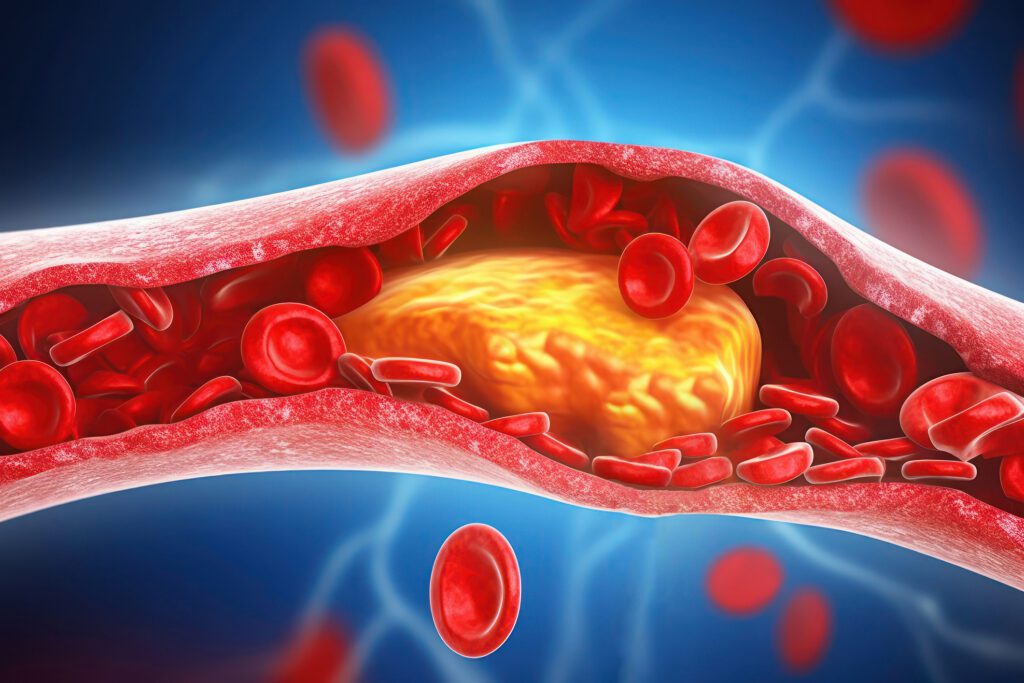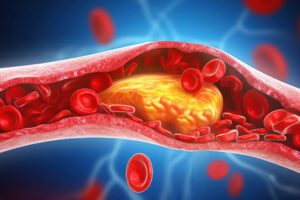Here’s How Medications Affect your Thyroid, Fertility & Hormone Balance:
Pain Pills
Pills for pain include analgesics prescription drugs. One particularly strong sub class of these drugs include the opioid family. While these drugs may reduce pain and create a sense of euphoria they can be highly addictive and cause very serious side effects, affecting hormone therapy outcomes. The CDC reports almost 70% of overdose deaths involve opioids and usually fentanyl is the named culprit.
The endocrine system, crucial in hormone therapy and hormone replacement, is greatly affected by the medications we ingest. This system is composed of your thyroid gland, the adrenal glands, the ovaries, and testes, among others.
What these medications can do to your endocrine system are as follows:
They can induce hypogonadism in both men and women – meaning they can shrink your testes and ovaries. Pain medications can suppress gonadotropin-releasing hormone ( GNRH ) from the part of the brain called the hypothalamus and thereby reduce hormones LH (luteinizing hormone) and FSH (follicle-stimulating hormone) affecting the downstream production of hormones in the ovaries and testes.
Steroid-Based Medications & Your Adrenals
Steroid medications are used primarily to reduce inflammation in chronic and acute situations. They come in prescribed forms as injections, tablets, nasal sprays, inhaler‘s (for Asthma), and topical creams. Synthetic glucocorticoids like prednisone are quite potent and longer acting and as such can suppress the hypothalamic pituitary axis (HPA) – basically the hormone control centre in the brain.
When a person is taking in a daily source of glucocorticoid medication the adrenal cortex does not function and adrenal atrophy may ensue. A person might experience adrenal deterioration while taking 15mg a day of prednisone (or it’s equivalent) for more than three weeks.
Thus, anyone on steroid treatment should always taper off in some fashion to prevent an HPA crash.
In some cases, a person might wonder if taking cortisol (eg, hydrocortisone) can have the same effect and suppress the HPA? An average adult makes approx. 15-20mg of cortisol in the adrenal gland. We can also create more cortisol from cortisone via 11beta-HSD1 enzyme.
In a study in which patients were given a single dose of 20 mg oral hydrocortisone, peak supraphysiologic levels of cortisol were shown to occur two hours in serum, saliva, and urine. The levels then declined over 5 to 6 hours.
The authors of the study concluded the 20 mg of Hydrocortisone was excessive for routine maintenance, as this dose was supraphysiologic. Given the known negative feedback loop that occurs with excessive cortisol, it is possible that routine supraphysiologic doses could suppress the HP access.
Medications that Impact your Thyroid
A 2014 study looked at people who received 20 mg of prednisone for nine days. The results revealed a significant decrease in the main serum TSH level, but showed no changes in thyroxine (T4), triiodothyronine (T3), or thyroxine-binding globulin (TBG).
It is well known that glucocorticoids are often given to patients during a thyroid storm to suppress TSH production, prevent the conversion of T4 into active T3, and also reduce inflammation. (1)2
As such, it is important to have your thyroid labs monitored when taking any type of steroid medication
Another commonly prescribed drug that can impact your thyroid health is an Acne medication called isotretinoin, AKA, Accutane.
This is more commonly prescribed for young adults and teens struggling with moderate-to-severe acne.
Many patients are unaware of the class action lawsuits in both Canada and US for the long term implications this short term drug can have on their overall health.
Isotretinoin, is a teratogen – meaning it is causes malformations in an embryo, thus making it a category X drug in pregnancy, and comes with a large side effect profile including:
- Depression
- Anxiety
- Suicidal Ideation
- Pseudotumor Cerebri
- Pancreatitis
- Hearing & visual impairment
- Irritable bowel disease (Crohn’s disease and Ulcerative colitis)
- Headaches
- Erectile Dysfunction, inability to orgasm
- Vaginal dryness, painful intercourse and loss of libido
- Many more
Acne can be stressful and alarming to one’s self-confidence, personal identity and even impact job performance if how you look is an important aspect of what you do. But these side effects may become lifelong for some patients and not worth it. So let’s look at some evidence to support the above claims.
A study published in the November-December 2005 of the Spanish Urological Journal suggests that sexual adverse reactions are far more prevalent than what one would assume (1).
- 30 % of patients receiving isotretinoin developed erectile dysfunction during the study, according to the IIEF-5 scale.
- Only 5% of the patients receiving an antibiotic (minocycline) developed ED during the same study.
- 60% of the group given isotretinoin were found to have developed depression during the treatment as measured by the Hamilton Rating Scale for Depression.
- Only 8% of the control group were found to have developed depression.
This study provides clear evidence of a correlation between isotretinoin and erectile dysfunction, as well as depression.
Did you know?
This drug was discontinued in the United States in 2009 but continues to be prescribed in Canada to this day.
There are safer, effective and natural ways to reduce acne without taking on the life-long risks mentioned here. Please avoid this medication at all costs and speak with a naturopathic doctor to help address your skin concerns.
Birth Control and its Impacts on Fertility
It’s important to understand that when you have PMS the medical approach might be to prescribe you a birth control pill. Or if you are struggling with depression, the medical approach might be to prescribe you a birth control pill.
Or if you have bad period cramps, migraine headaches, raging acne or even anxiety – the medical approach, you guessed it – might be to prescribe you a birth control pill. I think the conventional approach to female health issues needs to be re-evaluated.
Contraceptive medication in the form of birth control or Intrauterine Device is designed to prevent pregnancy first and foremost. The longer that you are on these medications, the more it interferes with your internal natural hormone production and your future ability to get pregnant, which might necessitate a discussion about hormone therapy in the future.
The Negative Feedback Loop Birth Control can Have on the Female Cycle:
Synthetic progestin used in the birth control pill causes a negative feedback loop to the brain, resulting in decreased GnRH from the hypothalamus, and decreased LH and FSH from the pituitary.
This prevents follicle development, ovulation, and endogenous production of estradiol and progesterone. It essentially makes it so you do not ovulate, therefore, preventing pregnancy.
Another side effect of the oral synthetic estrogen is the increase in binding globulins. This includes TBG and sex hormone-binding globulin (SHBG). An increase in TBG lowers thyroid hormones, and an increase in SHBG lowers testosterone. This leads to the common complaint that Birth Control reduces a patients sex drive.
The IUD can also have a similar effect on ovulation and progesterone levels in some women.
The IUD prevents implantation by thinning the lining of the endometrium in order to and alter cervical mucus to prevent sperm from moving to the egg. Research has shown that 55% of women using the progestin-IUD did not ovulate during a 1-year study, while 25% still did not ovulate after 4 years. Anovulation results in no corpus luteum formation, thus no progesterone production.
Even though you can still have your period on birth control and the IUD, the constantly high levels of hormones 3 weeks of the month interferes with natural ovulation. Artificially adding in one or two hormones affects the whole system negatively. This can have a variety of negative side effects including reduced libido, depression, and mood changes and fatigue, as well as potential difficulty with future fertility. The diagram on the right shows the natural female reproductive cycle to help you better understand how birth control disrupts this process.
Find Out More About Natural Treatments for Hormonal Disruption
If you are experiencing side effects from your medications, or if you think they are affecting your mood there are holistic options available for you. At the clinic we can check your hormone levels and determine a path to help you heal naturally. It is so important to be aware of what’s entering the body, as hormonal imbalances can be the root of many chronic health conditions. Click the link to book with us.
References
- Tirado Sánchez A, León Dorantes G. [Erectile dysfunction during isotretinoin therapy].
- Marco Rossi and Michele Pellegrino. Acitretin-associated erectile dysfunction: a case report
- Ustun I, Rifaioglu EN, Sen BB, Inam MU, Gokce C. Gynecomastia: a rare complication of isoretinoin?
- Csoka AB, Szyf M. Epigenetic side-effects of common pharmaceuticals: a potential new field in medicine and pharmacology.
Contraception References:
- European Medicines Agency. Annex I: CMDH scientific conclusions – Scientific conclusions and grounds for the variation to the terms of the Marketing Authorisation(s). August 2017. Available at: https://tinyurl.com/y4awwvqy. Accessed May 17, 2019.
- Panzer C, Wise S, Fantini G, et al. Impact of oral contraceptives on sex hormone‐binding globulin and androgen levels: a retrospective study in women with sexual dysfunction. J Sex Med. 2006;3(1):104-113.
- Bayer Healthcare Pharmaceuticals. Mirena (Levonorgestrel-releasing intrauterine device). July 2008. Available at: https://www.accessdata.fda.gov/drugsatfda_docs/label/2008/021225s019lbl.pdf. Accessed September 10, 2020.
- Bayer Healthcare Pharmaceuticals. Mirena. [Full prescribing information] Available at:https://www.mirena.com/html/pdf/Mirena_Prescribing_Information.pdf. Accessed September 10, 2020.
[/vc_column_text][/vc_column][/vc_row]
When a patient asks me “Are the medications I’m taking affecting my hormones?” The answer is often – “Yes”. The OTC and prescription medications people take can, and do, affect the body’s hormone balance, a crucial factor to consider in hormone therapy and hormone replacement.
Almost half our population is taking at least one prescription medication while 22% are taking at least three or more medications.
The most commonly prescribed classes of drugs include analgesics for pain, cholesterol-lowering pills, and dermatologic or skin agents including steroid creams.
Among these pills, birth control is ranked one of the number one prescription drugs in North America, which is significant in discussions about hormone replacement therapy.
Here’s How Medications Affect your Thyroid, Fertility & Hormone Balance:
Pain Pills
Pills for pain include analgesics prescription drugs. One particularly strong sub class of these drugs include the opioid family. While these drugs may reduce pain and create a sense of euphoria they can be highly addictive and cause very serious side effects, affecting hormone therapy outcomes. The CDC reports almost 70% of overdose deaths involve opioids and usually fentanyl is the named culprit.
The endocrine system, crucial in hormone therapy and hormone replacement, is greatly affected by the medications we ingest. This system is composed of your thyroid gland, the adrenal glands, the ovaries, and testes, among others.
What these medications can do to your endocrine system are as follows:
They can induce hypogonadism in both men and women – meaning they can shrink your testes and ovaries. Pain medications can suppress gonadotropin-releasing hormone ( GNRH ) from the part of the brain called the hypothalamus and thereby reduce hormones LH (luteinizing hormone) and FSH (follicle-stimulating hormone) affecting the downstream production of hormones in the ovaries and testes.
Steroid-Based Medications & Your Adrenals
Steroid medications are used primarily to reduce inflammation in chronic and acute situations. They come in prescribed forms as injections, tablets, nasal sprays, inhaler‘s (for Asthma), and topical creams. Synthetic glucocorticoids like prednisone are quite potent and longer acting and as such can suppress the hypothalamic pituitary axis (HPA) – basically the hormone control centre in the brain.
When a person is taking in a daily source of glucocorticoid medication the adrenal cortex does not function and adrenal atrophy may ensue. A person might experience adrenal deterioration while taking 15mg a day of prednisone (or it’s equivalent) for more than three weeks.
Thus, anyone on steroid treatment should always taper off in some fashion to prevent an HPA crash.
In some cases, a person might wonder if taking cortisol (eg, hydrocortisone) can have the same effect and suppress the HPA? An average adult makes approx. 15-20mg of cortisol in the adrenal gland. We can also create more cortisol from cortisone via 11beta-HSD1 enzyme.
In a study in which patients were given a single dose of 20 mg oral hydrocortisone, peak supraphysiologic levels of cortisol were shown to occur two hours in serum, saliva, and urine. The levels then declined over 5 to 6 hours.
The authors of the study concluded the 20 mg of Hydrocortisone was excessive for routine maintenance, as this dose was supraphysiologic. Given the known negative feedback loop that occurs with excessive cortisol, it is possible that routine supraphysiologic doses could suppress the HP access.
Medications that Impact your Thyroid
A 2014 study looked at people who received 20 mg of prednisone for nine days. The results revealed a significant decrease in the main serum TSH level, but showed no changes in thyroxine (T4), triiodothyronine (T3), or thyroxine-binding globulin (TBG).
It is well known that glucocorticoids are often given to patients during a thyroid storm to suppress TSH production, prevent the conversion of T4 into active T3, and also reduce inflammation. (1)2
As such, it is important to have your thyroid labs monitored when taking any type of steroid medication
Another commonly prescribed drug that can impact your thyroid health is an Acne medication called isotretinoin, AKA, Accutane.
This is more commonly prescribed for young adults and teens struggling with moderate-to-severe acne.
Many patients are unaware of the class action lawsuits in both Canada and US for the long term implications this short term drug can have on their overall health.
Isotretinoin, is a teratogen – meaning it is causes malformations in an embryo, thus making it a category X drug in pregnancy, and comes with a large side effect profile including:
- Depression
- Anxiety
- Suicidal Ideation
- Pseudotumor Cerebri
- Pancreatitis
- Hearing & visual impairment
- Irritable bowel disease (Crohn’s disease and Ulcerative colitis)
- Headaches
- Erectile Dysfunction, inability to orgasm
- Vaginal dryness, painful intercourse and loss of libido
- Many more
Acne can be stressful and alarming to one’s self-confidence, personal identity and even impact job performance if how you look is an important aspect of what you do. But these side effects may become lifelong for some patients and not worth it. So let’s look at some evidence to support the above claims.
A study published in the November-December 2005 of the Spanish Urological Journal suggests that sexual adverse reactions are far more prevalent than what one would assume (1).
- 30 % of patients receiving isotretinoin developed erectile dysfunction during the study, according to the IIEF-5 scale.
- Only 5% of the patients receiving an antibiotic (minocycline) developed ED during the same study.
- 60% of the group given isotretinoin were found to have developed depression during the treatment as measured by the Hamilton Rating Scale for Depression.
- Only 8% of the control group were found to have developed depression.
This study provides clear evidence of a correlation between isotretinoin and erectile dysfunction, as well as depression.
Did you know?
This drug was discontinued in the United States in 2009 but continues to be prescribed in Canada to this day.
There are safer, effective and natural ways to reduce acne without taking on the life-long risks mentioned here. Please avoid this medication at all costs and speak with a naturopathic doctor to help address your skin concerns.
Birth Control and its Impacts on Fertility
It’s important to understand that when you have PMS the medical approach might be to prescribe you a birth control pill. Or if you are struggling with depression, the medical approach might be to prescribe you a birth control pill.
Or if you have bad period cramps, migraine headaches, raging acne or even anxiety – the medical approach, you guessed it – might be to prescribe you a birth control pill. I think the conventional approach to female health issues needs to be re-evaluated.
Contraceptive medication in the form of birth control or Intrauterine Device is designed to prevent pregnancy first and foremost. The longer that you are on these medications, the more it interferes with your internal natural hormone production and your future ability to get pregnant, which might necessitate a discussion about hormone therapy in the future.
The Negative Feedback Loop Birth Control can Have on the Female Cycle:
Synthetic progestin used in the birth control pill causes a negative feedback loop to the brain, resulting in decreased GnRH from the hypothalamus, and decreased LH and FSH from the pituitary.
This prevents follicle development, ovulation, and endogenous production of estradiol and progesterone. It essentially makes it so you do not ovulate, therefore, preventing pregnancy.
Another side effect of the oral synthetic estrogen is the increase in binding globulins. This includes TBG and sex hormone-binding globulin (SHBG). An increase in TBG lowers thyroid hormones, and an increase in SHBG lowers testosterone. This leads to the common complaint that Birth Control reduces a patients sex drive.
The IUD can also have a similar effect on ovulation and progesterone levels in some women.
The IUD prevents implantation by thinning the lining of the endometrium in order to and alter cervical mucus to prevent sperm from moving to the egg. Research has shown that 55% of women using the progestin-IUD did not ovulate during a 1-year study, while 25% still did not ovulate after 4 years. Anovulation results in no corpus luteum formation, thus no progesterone production.
Even though you can still have your period on birth control and the IUD, the constantly high levels of hormones 3 weeks of the month interferes with natural ovulation. Artificially adding in one or two hormones affects the whole system negatively. This can have a variety of negative side effects including reduced libido, depression, and mood changes and fatigue, as well as potential difficulty with future fertility. The diagram on the right shows the natural female reproductive cycle to help you better understand how birth control disrupts this process.
Find Out More About Natural Treatments for Hormonal Disruption
If you are experiencing side effects from your medications, or if you think they are affecting your mood there are holistic options available for you. At the clinic we can check your hormone levels and determine a path to help you heal naturally. It is so important to be aware of what’s entering the body, as hormonal imbalances can be the root of many chronic health conditions. Click the link to book with us.
References
- Tirado Sánchez A, León Dorantes G. [Erectile dysfunction during isotretinoin therapy].
- Marco Rossi and Michele Pellegrino. Acitretin-associated erectile dysfunction: a case report
- Ustun I, Rifaioglu EN, Sen BB, Inam MU, Gokce C. Gynecomastia: a rare complication of isoretinoin?
- Csoka AB, Szyf M. Epigenetic side-effects of common pharmaceuticals: a potential new field in medicine and pharmacology.
Contraception References:
- European Medicines Agency. Annex I: CMDH scientific conclusions – Scientific conclusions and grounds for the variation to the terms of the Marketing Authorisation(s). August 2017. Available at: https://tinyurl.com/y4awwvqy. Accessed May 17, 2019.
- Panzer C, Wise S, Fantini G, et al. Impact of oral contraceptives on sex hormone‐binding globulin and androgen levels: a retrospective study in women with sexual dysfunction. J Sex Med. 2006;3(1):104-113.
- Bayer Healthcare Pharmaceuticals. Mirena (Levonorgestrel-releasing intrauterine device). July 2008. Available at: https://www.accessdata.fda.gov/drugsatfda_docs/label/2008/021225s019lbl.pdf. Accessed September 10, 2020.
- Bayer Healthcare Pharmaceuticals. Mirena. [Full prescribing information] Available at:https://www.mirena.com/html/pdf/Mirena_Prescribing_Information.pdf. Accessed September 10, 2020.






